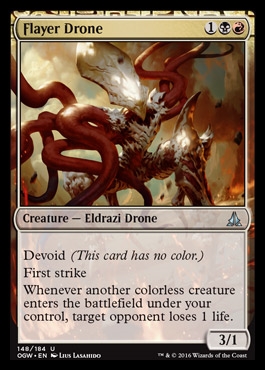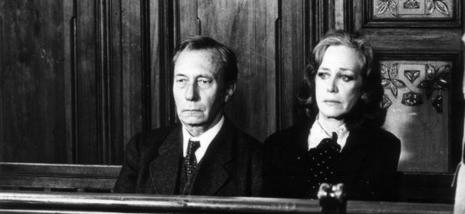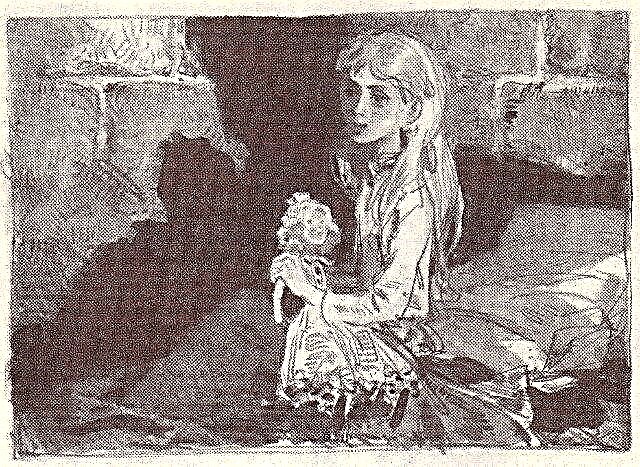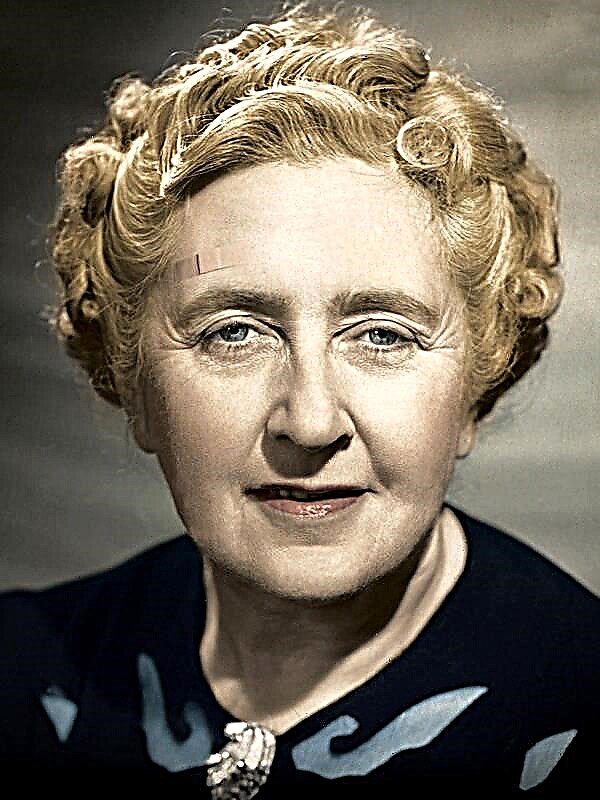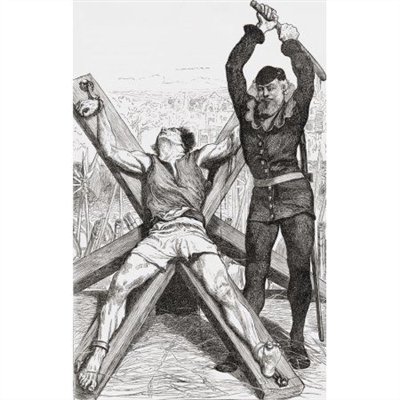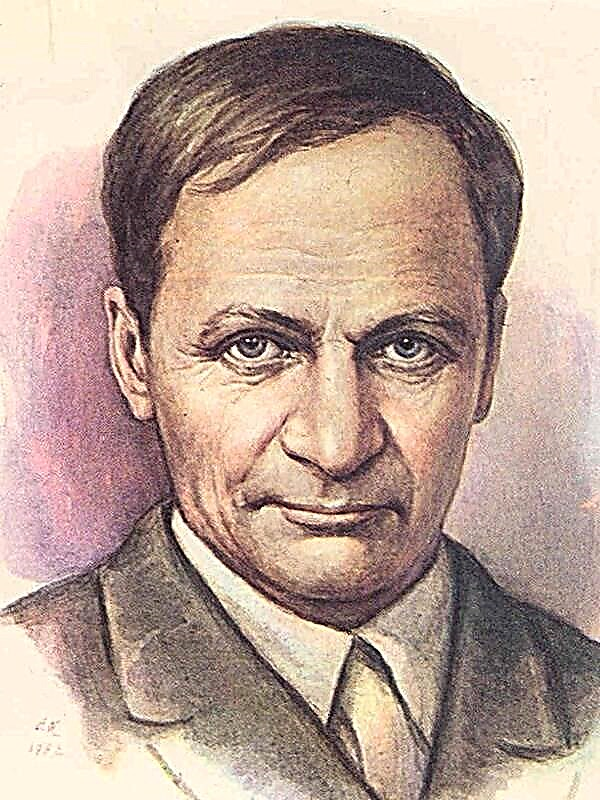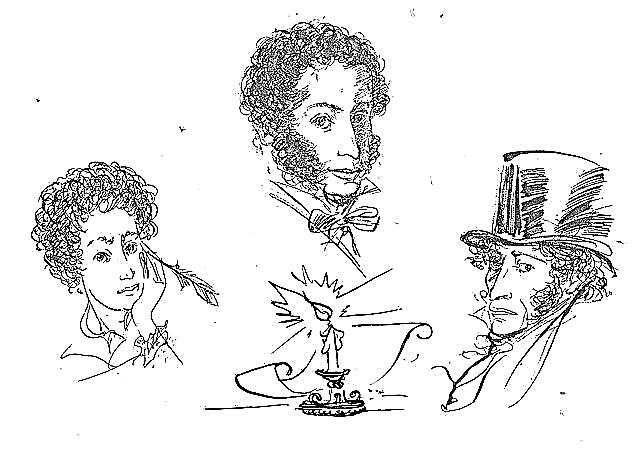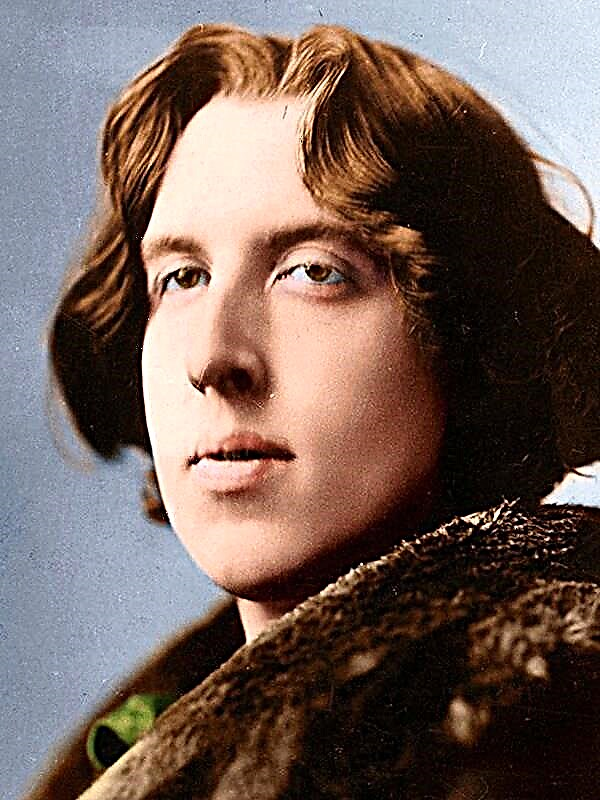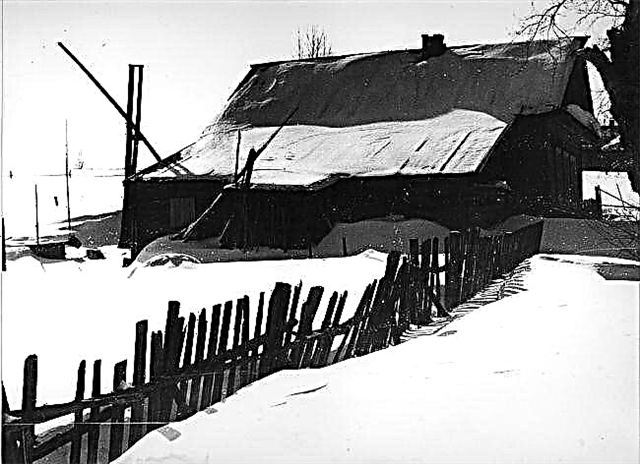Prologue
Eleanor Carlisle is accused of killing Mary Gerard. Among those present in the courtroom is the famous detective Hercule Poirot.
Part one
Mrs. Wellman, bedridden hostess of the Hunterberry estate, is looked after by two nurses, Miss O’Brien and Miss Hopkins. Mrs. Wellman was a widow early and never married again. Having no children, she always pampered her brother’s daughter, Elinor, and her husband’s nephew, Roderick. Roderick and Elinor love each other, but due to financial difficulties they cannot get married. Young people are counting on the legacy that Mrs. Wellman will leave. Also, Mrs. Wellman is very attached to the caretaker's daughter, Mary Gerard. She helped the girl get an education and promises help in the future. Mother Mary died many years ago, and the girl’s father, who never loved her like a real father, taunts her education. Mrs. Wellman doesn’t let Mary go from her, asks all the time to sit near her.
Suddenly, Elinor receives an anonymous letter in which, in a clumsy handwriting, with gross grammatical errors, it is reported that a certain young girl is going to rob Elinor and Roderick. Realizing that this is Mary, the young people decide to come to Hunterberry and find out.
Miss O’Brien tells Miss Hopkins how one night Mrs. Wellman asked her to get a photograph of a certain Lewis from her drawer. She looked at her with love for a long time and whispered something. Nurses suggest that Mrs. Wellman had a lover, because her husband was called Henry.
Before the arrival of Elinor and Roderick with Mrs. Welman, a blow occurs and she is speechless. Before dying, she tries to ask Eleanor not to leave Mary. Roderick meets Mary, whom he saw as a child, and the girl sinks into his soul. Eleanor, feeling that Roderick begins to cool towards her, is jealous. Here Mrs. Welman Peter Lord, the attending physician, pays attention to her.
Mrs. Wellman dies in a dream at night. In the morning, Miss Hopkins cannot find a morphine tube in her briefcase. Since Mrs. Wellman left no will, her condition should go to Elinor, as to the next of kin. Roderick at first says that he is ashamed to live on his wife’s money, and then admits that he loves Mary. Elinor returns his engagement ring.
Despite her hatred of Mary, Eleanor gives her a significant amount of money at the request of her aunt. Mary tells Miss Hopkins about this, and a nurse advises the girl to make a will. Father Mary does not want to leave money. She decides to leave everything to her mother's sister Mary Riley, who lives in New Zealand. Elinor also draws up a will in which Roderick leaves all his fortune.
Miss O’Brien, who now works in a different house, writes a letter to Miss Hopkins. In the living room, she saw exactly the same photograph that Mrs. Wellman saw. She learned that the man depicted on her is Sir Lewis, the brother of the mistress of the house. He was married, but his wife was insane. Sir Lewis himself was killed in the war. Miss Hopkins finds a woman who has long lived in those parts and confirms this. Mary's father tells Miss Hopkins that Mary is not his daughter, but his wife, who was Mrs. Welman's maid before her marriage.
Elinor sells Hunterberry. Once she dreamed of living here with Roderick, but now they parted. Here old Gerard dies, and Eleanor asks Mary, who is now studying in London, to come and collect her father’s belongings. Elinor arrives at Hunterberry, stops at a hotel and comes to the estate to sort things out aunt. Eleanor is haunted by the thought that if there weren’t Mary, they and Roderick would be happy, involuntarily she wants Mary to die.
Mary, along with Miss Hopkins, parses things father.She finds a marriage certificate for her parents and sees that they got married after her birth. Miss Hopkins reassures the girl, saying that it does not matter, but still says that Mary is not Gerard's daughter.
Elinor invites Mary and Miss Hopkins to drink sandwich tea. Miss Hopkins goes to the kitchen to put the kettle on and returns with a tray. Elinor refuses to drink tea. Miss Hopkins goes back to the kitchen, soon Elinor arrives there with dirty dishes. She sees that Miss Hopkins is pale and has a shot in her arm. The nurse explains that she pricked about the spike of a rose that grows in the garden. After cleaning the dishes, the women go up to Mrs. Wellman’s bedroom to take apart her clothes. Suddenly, they remember Mary and return to the living room, where they drank tea. Mary they find dead.
Part two
An autopsy revealed that Mary Gerard died as a result of morphine poisoning, and a label was found at home with the inscription "morphine hydrochloride ...". Given that Miss Hopkins lost the tube with morphine, they want to exhume the body of Mrs. Welman.
The famous detective Hercule Poirot turns to Dr. Peter Lord for help. Eleanor is accused of killing Mary Gerard, but the young man does not believe in it. Having studied the facts, Poirot proceeds with an investigation and interviews witnesses. He visits Miss Hopkins, who considers Elinor a soulless poisoner. She says that Mary's mother served as Mrs. Wellman's maid and married Gerard, already having a daughter. Who is the real father of Mary, Miss Hopkins, perhaps, knows, but will keep her mouth shut. Mrs. Wellman's housekeeper, Mrs. Bishop, hates Mary. Unlike the others, comparing a girl with a delicate flower, the housekeeper believes that Mary was a cunning and calculating person, counting on money Mrs. Welman and trying to get Roderick as her husband.
A fan of Mary, the mechanic Ted, who is in love with her unrequitedly, believes that Mary had no enemies, and he does not imagine that anyone could wish her dead. Roderick also does not understand who might need to kill Mary. Both Ted and Roderick do not believe that Elinor poisoned her.
Peter Lord Poirot can not yet say anything new, the death of Mary is not beneficial to anyone but Elinor. But the famous detective feels that in the past Mary has a certain circumstance that Miss Hopkins knows.
Poirot meets with Miss O’Brien, who finds Eleanor guilty of Mary's death. If Mrs. Wellman made a will, then she would leave everything to Mary - the old lady was very attached to the girl. The nurse also tells him about the affair of Mrs. Wellman and Sir Lewis.
Poirot visits Eleanor, who talks about the events of that day. The famous detective, along with Peter Lord, arrives in Hunterberry. He comes to Miss Hopkins, and she tells what she withheld: Mary was the daughter of Mrs. Welman and Sir Lewis. In response, Miss Hopkins hands out a letter from the adoptive mother of Mary Eliza Riley, which she found after the girl's death. The woman asked her to be sent to Mary after her death. Eliza gave birth to a illegitimate child from Gerard, who died. Soon, Mrs. Wellman gave birth to Mary and gave it to Eliza, who later married Gerard. Since Gerard lived in the estate, no one was surprised that the childless lady was interested in Mary.
Part three
The court hears witness statements. Elinor sees Hercule Poirot in the hall and hopes for his help. Miss Hopkins confirms the loss of morphine from her suitcase, that the label was found in the kitchen from him, that during a tea party she pricked her hand on a rose bush, and that on her advice, Mary wrote a will in favor of her aunt, mother's sister Mary Riley, who lives in New Zealand.
Elinor confirms her previous testimony and states that she did not kill Mary.
The Hunterberry estate gardener swears that roses growing on the estate have no thorns.A professional pharmacist testifies: in the kitchen, the label found is from apomorphine hydrochloride, an effective emetic, and not from morphine hydrochloride. If morphine is introduced into the body, followed by apomorphine, morphine will be excreted by vomiting.
The court calls New Zealand residents to confirm that Miss Hopkins's real name is Mary Riley, and she returned to England several years ago.
Given these facts, the court finds Eleanor innocent.
Hercule Poirot explains to Peter Lord the course of his reasoning. Seeing that there were no thorns on roses, he realized that Miss Hopkins was lying. He also noticed that she hides some facts, but wants them to come out. Only Miss Hopkins knew that morphine had disappeared, and for some reason she spoke about it. It was she who wrote an anonymous letter to Elinor and Roderick. The fact that Roderick was carried away by Mary, Miss Hopkins used to blame Eleanor. But why did Miss Hopkins need to kill Mary? A letter from Eliza Riley betrayed her. After all, if the letter had been written for the daughter, Eliza would have asked him to send, and the letter was written "forward." Consequently, Eliza wrote it for her sister, and Miss Hopkins received it many years ago when Eliza died. New Zealand police spotted Mary Riley for the fraud, and she came to England. She couldn’t blackmail Mrs. Wellman, so she was waiting for the opportunity.
Thanks to Peter, all charges have been dropped from Elinor. The doctor fears that now Elinor will be happy with Roderick, but the famous detective calms him: happy Elinor will be with Peter.

